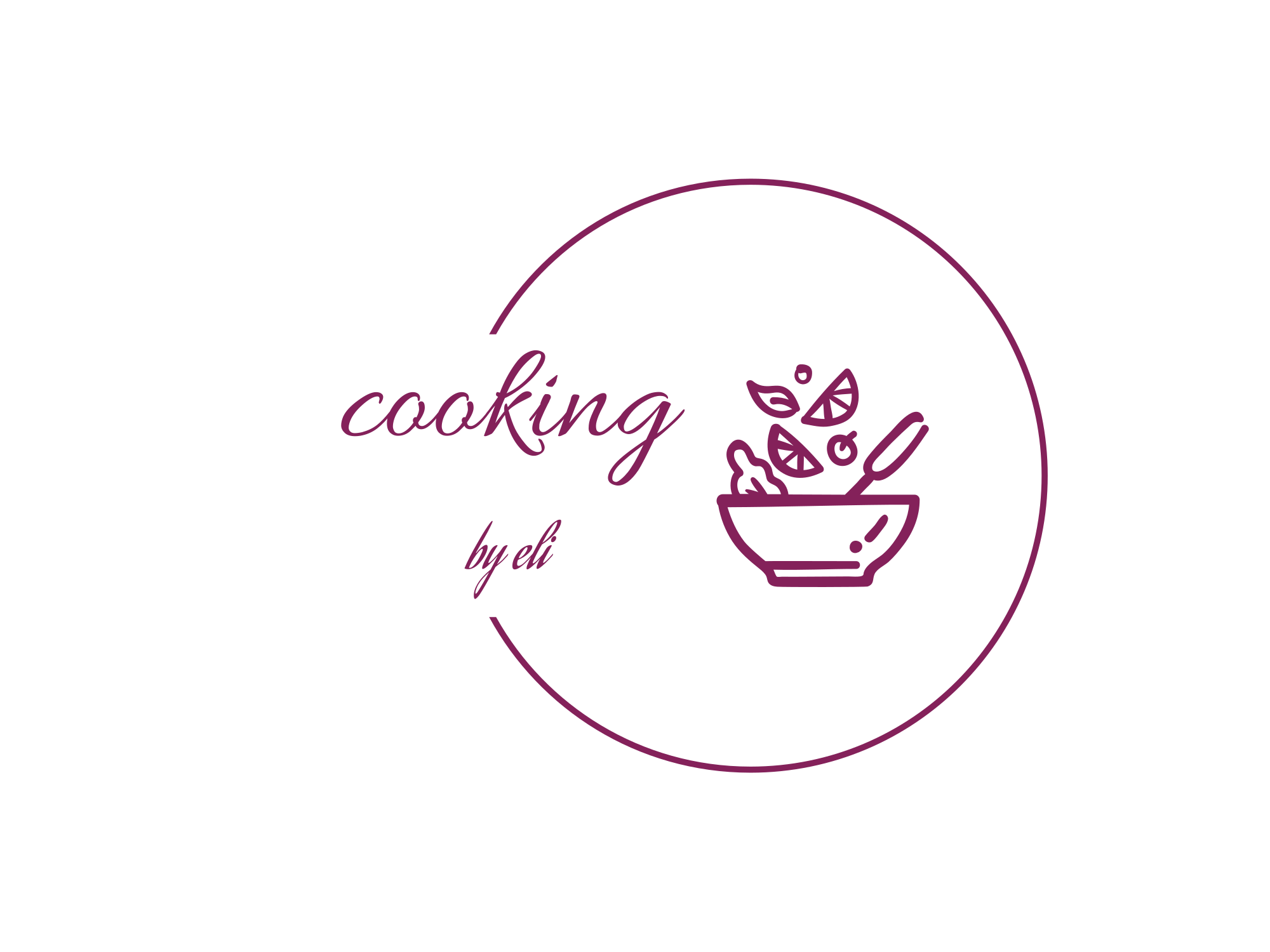Hydrating Foods for Weight Loss: How Staying Hydrated Boosts Metabolism and Reduces Hunger
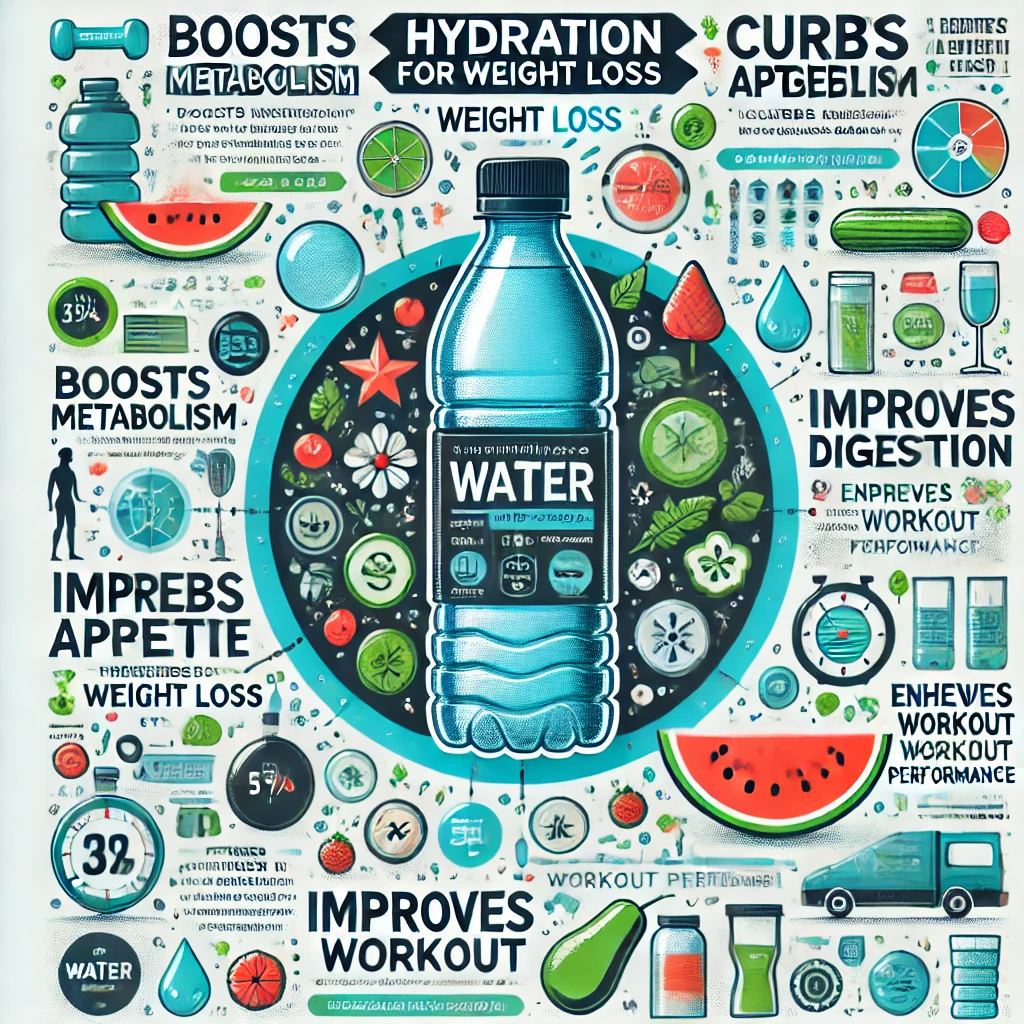
Why Hydration is Important for Weight Loss
Hydration is essential for effective weight loss because water supports numerous bodily functions that aid in managing weight. Firstly, water helps boost metabolism, which is the rate at which the body burns calories. Staying hydrated allows the body to maintain a steady metabolism, thus helping to burn more calories throughout the day.
Additionally, water acts as a natural appetite suppressant. Often, people confuse thirst with hunger, leading to unnecessary snacking. Drinking water before meals can help reduce calorie intake by creating a feeling of fullness, which may prevent overeating. Furthermore, water is crucial for digestion and helps the body break down food more efficiently, allowing for better nutrient absorption and energy use.
Hydration also plays a role in physical performance. When hydrated, the body is better able to manage exercise and recover afterward, leading to more effective workouts. Dehydration can cause fatigue, muscle cramps, and decreased endurance, making it difficult to maintain an active lifestyle—a key factor in weight loss.
Lastly, adequate hydration aids in detoxification. Drinking enough water helps the body flush out toxins, reducing bloating and water retention. Together, these factors make hydration a vital part of any successful weight loss plan.
Hydration’s Role in Metabolism and Fat Burning
How Staying Hydrated Helps Control Hunger
Staying hydrated plays a crucial role in metabolism and helps control hunger, supporting overall weight management. When the body is well-hydrated, it can efficiently metabolize nutrients and regulate energy levels. Dehydration, on the other hand, can slow down the metabolic rate, making it harder to burn calories effectively.
Hydration also impacts hunger signals. Often, people misinterpret thirst as hunger, leading to unnecessary snacking. Drinking water before meals can help suppress appetite, as it fills the stomach and creates a sense of fullness, which may reduce calorie intake. Additionally, staying hydrated helps regulate hormones, including those related to hunger, such as ghrelin and leptin, ensuring that hunger cues are accurate.
Water also supports the body’s ability to burn fat by facilitating lipolysis, the breakdown of fat for energy. By staying adequately hydrated, individuals can optimize both their metabolism and appetite control, contributing to a healthier weight and overall wellness.
How Proper Hydration Helps You Lose Weight
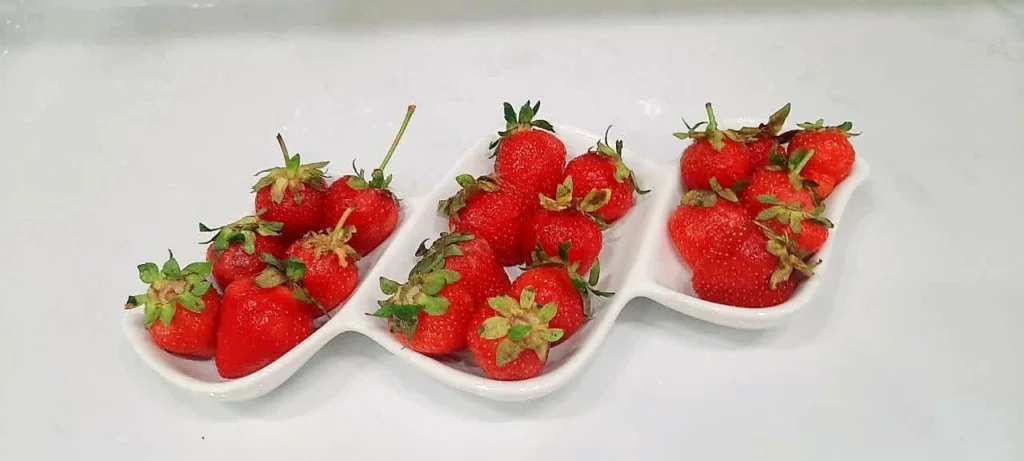
Top Hydrating Foods to Add to Your Diet
Incorporating hydrating foods into your diet is an easy way to support hydration, improve digestion, and manage hunger. These foods are not only high in water content but also packed with essential nutrients.
Cucumbers, with about 95% water content, are an excellent choice for snacking or adding to salads. Watermelon is another hydrating powerhouse, providing both hydration and vitamins A and C. Celery, with its crisp texture and high water content, is low in calories and a good source of fiber, making it a perfect choice for satisfying hunger between meals.
Oranges are another hydrating fruit, containing about 86% water along with immune-boosting vitamin C and fiber. Tomatoes, versatile and delicious, add a hydrating boost to meals with roughly 94% water content, along with antioxidants like lycopene, which supports skin and heart health. Leafy greens, such as lettuce and spinach, are also hydrating, nutrient-dense, and low in calories.
Strawberries and bell peppers are other tasty options, containing around 90% water. Both are rich in vitamins C and antioxidants that support immune health. By adding these hydrating foods into your diet, you’ll support your hydration needs naturally, feel fuller longer, and gain a nutrient boost that enhances overall wellness.
List of foods:
1. Watermelon
2. Cucumbers
3. Strawberries
4. Lettuce
5. Zucchini
6. Celery
Incorporating hydrating foods into your diet is an easy and refreshing way to support hydration, curb hunger, and boost nutrient intake. Here are six top choices:
Watermelon: With around 92% water content, watermelon is one of the most hydrating fruits available. It’s rich in vitamins A and C, making it a sweet, refreshing option that helps keep you full without extra calories.
Cucumbers: Composed of about 95% water, cucumbers are incredibly hydrating and low in calories. They’re perfect as a snack or salad ingredient, providing a satisfying crunch and a mild, refreshing flavor.
Strawberries: These delicious berries are 91% water and are loaded with antioxidants and vitamin C. Strawberries are a great choice for hydrating snacks, smoothies, or a sweet addition to salads.
Lettuce: With up to 96% water content, lettuce is a hydrating base for salads and wraps. It’s low in calories and offers a bit of fiber to help keep you full and satisfied.
Zucchini: Zucchini is 94% water and can be enjoyed raw or cooked. It’s a versatile vegetable that adds bulk to meals and provides nutrients like potassium and vitamin C.
Celery: Comprising 95% water, celery is an ideal low-calorie snack. It’s also high in fiber and provides a good amount of vitamin K, making it both filling and nutritious.
Adding these hydrating foods to your daily diet can support hydration, aid digestion, and keep hunger in check.
How to Boost Your Metabolism for Faster Weight Loss
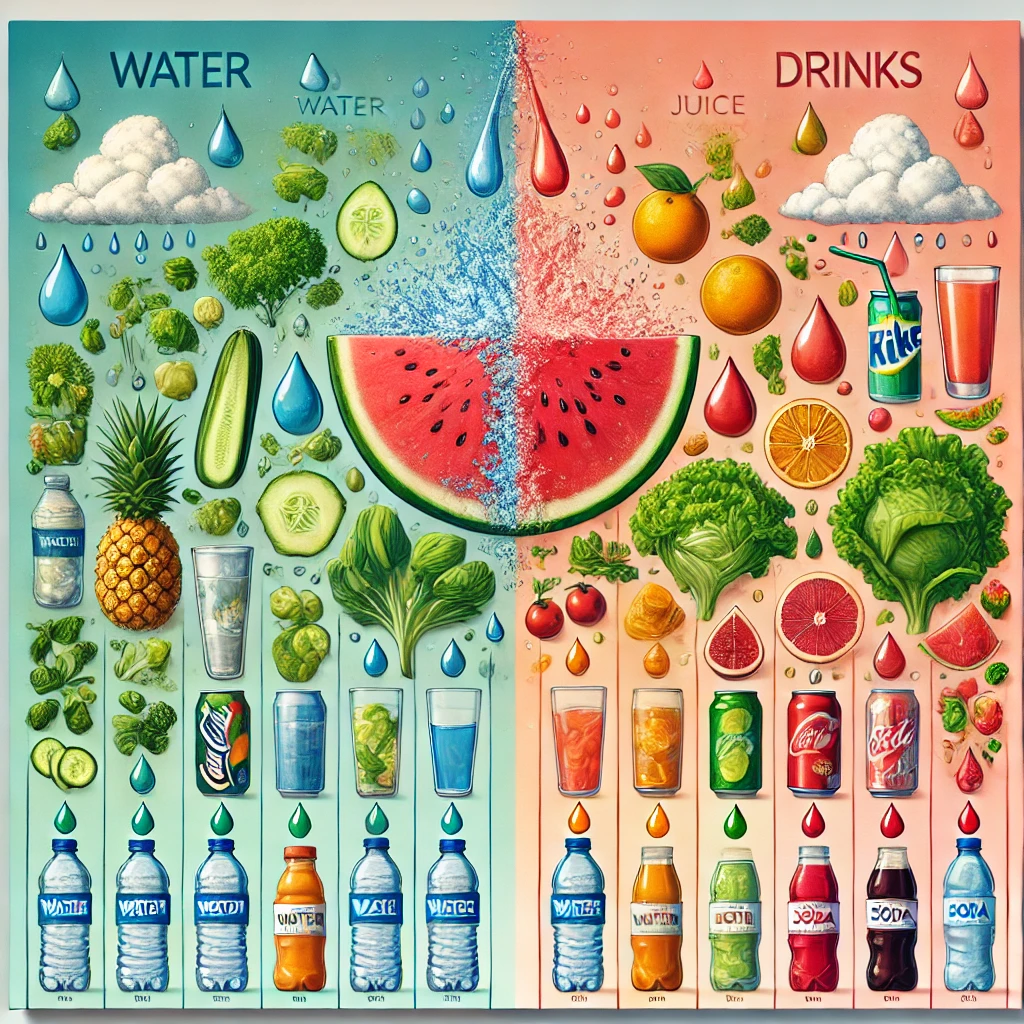
How to Incorporate Hydrating Foods into Your Meals
Incorporating hydrating foods into meals is a simple way to boost hydration, enhance nutrition, and support satiety. Start by adding a base of leafy greens like lettuce or spinach to your meals. They’re high in water and make a hydrating foundation for salads, wraps, or even as a bed for grilled proteins.
For breakfast, include watermelon or strawberries in a fruit salad, smoothie, or yogurt bowl. These fruits are not only refreshing but also add natural sweetness and essential nutrients. You can also mix cucumbers into smoothies for an extra hydrating boost with a mild flavor that won’t overpower other ingredients.
At lunch, try adding zucchini noodles or spiralized zucchini to replace or complement pasta dishes, reducing carbs while adding more hydration. Cucumbers and celery are perfect for snacking with hummus or cottage cheese, providing a satisfying crunch with minimal calories.
For dinner, consider incorporating zucchini or tomatoes into soups, stews, or stir-fries to naturally increase the meal’s water content. Finally, keep a bowl of mixed hydrating fruits like berries and melons in the fridge for a quick, nutrient-rich snack anytime. These simple swaps and additions make it easy to stay hydrated, energized, and fuller for longer throughout the day.
Easy Hydrating Salads and Smoothie Ideas
Hydrating Snacks to Keep You Full Between Meals
Staying hydrated throughout the day is easy with water-rich salads, smoothies, and snacks that satisfy hunger and provide essential nutrients.
Hydrating Salad Ideas
For a refreshing salad, start with a base of lettuce or spinach, which are both high in water. Add cucumber slices, tomatoes, and zucchini ribbons for extra hydration and crunch. Toss in watermelon or strawberries for a touch of sweetness and top with feta cheese or avocado for healthy fats. A squeeze of lemon juice and a drizzle of olive oil make a light dressing that enhances flavor without extra sodium.
Another easy option is a celery and apple salad with leafy greens, walnuts, and a sprinkle of feta. The high water content and fiber help keep you satisfied while providing a crisp, refreshing flavor.
Hydrating Smoothie Ideas
For smoothies, blend cucumber with pineapple, spinach, and a handful of frozen berries. Add coconut water for an extra hydrating base. Another delicious combination is watermelon with strawberries, mint, and a splash of lime juice—this combo is refreshing and naturally sweet.
Hydrating Snacks
When hunger strikes between meals, reach for hydrating snacks like celery sticks with hummus, cucumber slices with a sprinkle of chili powder, or a bowl of mixed berries. Grapes and orange slices are also excellent hydrating snacks, perfect for curbing cravings while keeping you hydrated. These options are light, filling, and packed with essential nutrients to keep you energized.
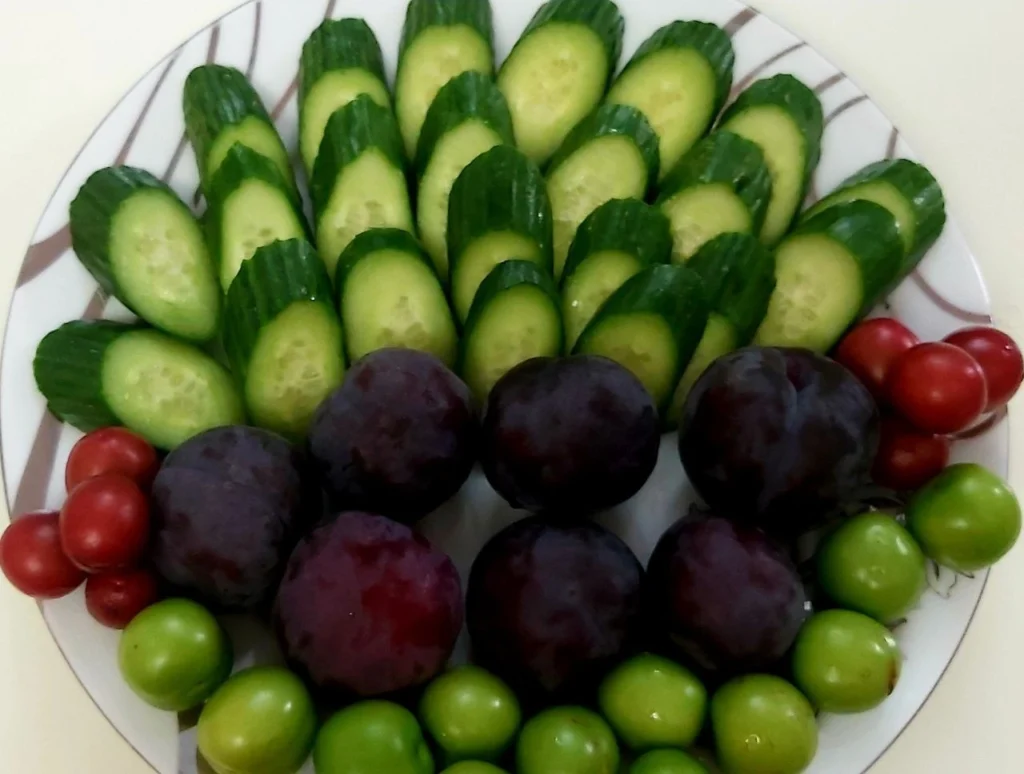
Other Health Benefits of Hydrating Foods
Hydrating foods offer numerous health benefits beyond just hydration, thanks to their rich nutrient content and high water levels. These foods, including fruits and vegetables like cucumbers, watermelon, strawberries, and celery, support various body functions and promote overall wellness.
One key benefit is improved digestion. Hydrating foods often contain fiber, which, along with their water content, helps regulate digestion, prevent constipation, and maintain a healthy gut. Fiber and water work together to keep the digestive tract moving smoothly, making it easier to absorb nutrients and eliminate waste.
Hydrating foods are also excellent for skin health. The combination of high water content, antioxidants, and essential vitamins, such as vitamin C found in strawberries and oranges, helps maintain skin elasticity and combat signs of aging. Proper hydration supports skin’s natural moisture balance, reducing dryness and promoting a radiant complexion.
These foods are generally low in calories and high in volume, which supports weight management by promoting satiety and reducing overall calorie intake. Additionally, many hydrating foods are rich in antioxidants and anti-inflammatory compounds, which help protect the body from oxidative stress and lower inflammation, supporting heart health and immune function. Incorporating these nutrient-dense, hydrating foods contributes to a balanced, health-promoting diet and overall vitality.
The Connection Between Sleep and Weight Loss: Why Rest is Key to Shedding Pounds
